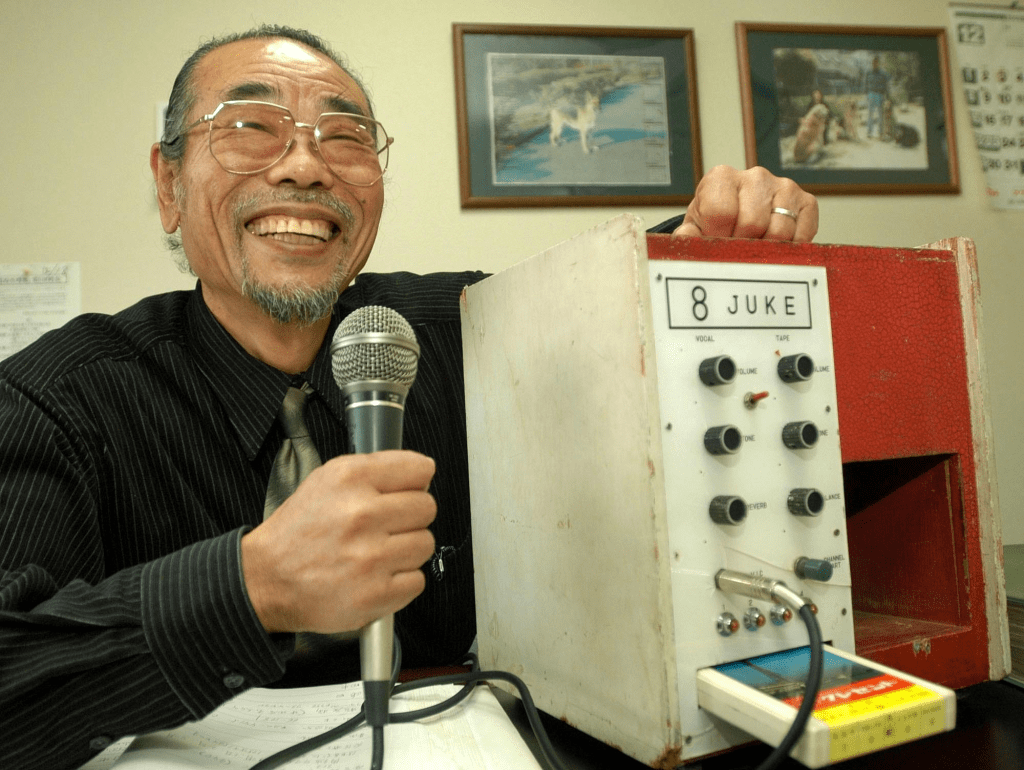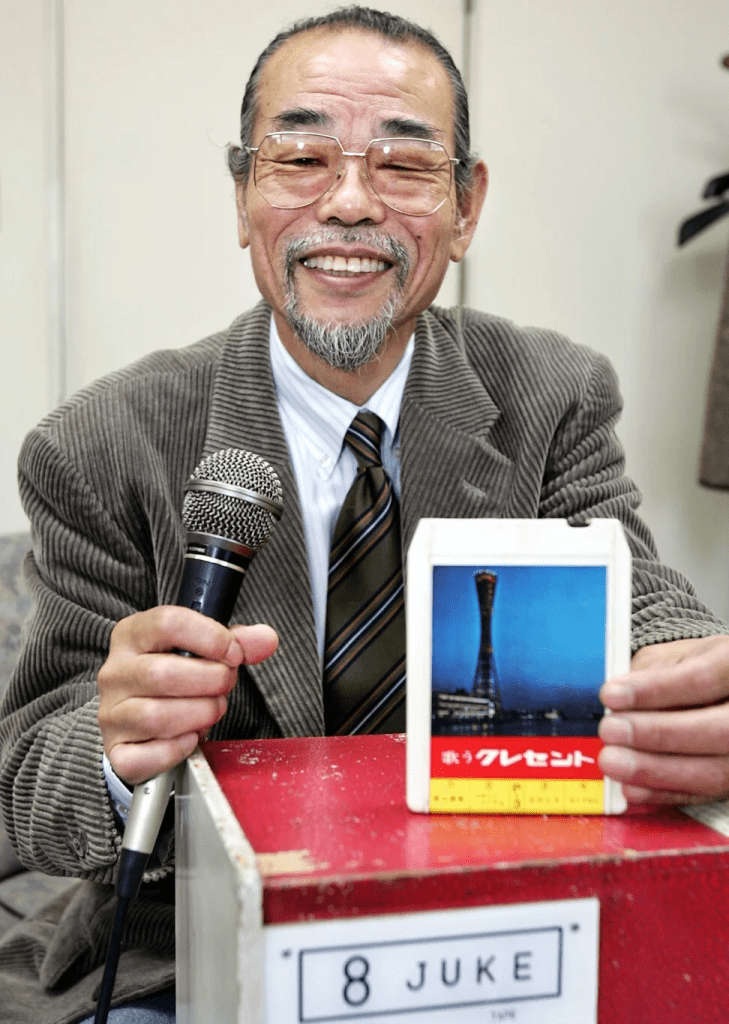In 1971, a soft-spoken Japanese drummer named Daisuke Inoue changed the world not with a blockbuster album or a famous concert, but with a homemade device that would eventually spark a global cultural movement. Using only a car radio, an amplifier, a speaker, and a coin box, Inoue built what would become known as the world’s first karaoke machine. He called it the “Juke 8,” and with that, he gave ordinary people the extraordinary opportunity to become the stars of their own songs.
The idea was deceptively simple. For 100 yen a song, anyone could sing along to instrumental versions of popular music. This wasn’t just a novelty it was the birth of karaoke, a practice that would go on to transcend languages, generations, and cultures.

The Inspiration Behind the Invention
Daisuke Inoue was not a tech entrepreneur or a trained engineer. He was a musician who played drums in backing bands around Kobe, Japan. His clients were often Japanese businessmen looking to unwind after a long day by singing popular tunes with live accompaniment. But Inoue wasn’t always available, and he wanted to offer a solution that allowed his clients to sing anytime they liked.

Rather than handing out tapes, Inoue had a spark of innovation. What if he could build a device that played instrumental tracks and let people sing along without needing a live band? He experimented with the technology available to him and, through trial and error, created the Juke 8.
This rudimentary machine may have looked unimpressive, but it had all the key components of modern karaoke. A user inserted a coin, selected a track, and sang over the music. It was entertainment, therapy, and performance rolled into one.
Video:
Daisuke Inoue and the history of karaoke!
Why He Chose Not to Patent Karaoke
In a world where most inventors seek fame and fortune, Daisuke Inoue took a different path. Despite being the creator of what would become a multi-billion-dollar industry, he never patented his invention. He wasn’t thinking about profits or legal protections. He simply wanted to share music in a way that brought people joy.
Inoue believed that music belonged to everyone, and karaoke was his way of democratizing performance. That choice may have cost him financially, but it allowed karaoke to spread rapidly and become embedded in cultures worldwide. It’s difficult to imagine a world today without karaoke, and that’s because Inoue didn’t put up any barriers.

The Rise of a Global Phenomenon
By the late 1970s, karaoke had spread beyond small bars and private lounges in Japan. It exploded in popularity throughout Asia and soon reached the United States, Europe, and beyond. Innovations followed quickly video screens showing lyrics, thousands of songs in multiple languages, and even scoring systems that rated vocal performance.
Karaoke bars became hotspots for socializing and celebrating. Friends gathered in private booths, families sang together at home, and office workers blew off steam at corporate parties. The magic of karaoke lay in its inclusivity. Whether someone had a golden voice or could barely carry a tune, everyone had a chance to step up to the mic.

Uniting People One Song at a Time
What makes karaoke so universally loved is its power to bring people together. It breaks down walls, encourages laughter, and creates memories. In a world often divided by language or cultural barriers, music remains a shared experience, and karaoke makes that experience interactive.
Video:
When Was Karaoke Invented? Tracing the Origins of Everyone’s Favorite Sing-Along
You don’t need to be fluent in a foreign language to belt out a hit from another country. You don’t have to be a professional singer to feel like a star. Whether you’re singing alone or with friends, karaoke provides a stage where everyone belongs.
A Legacy That Lives On
Though he remained humble about his invention, Daisuke Inoue eventually received long-overdue recognition. In 2004, he was awarded the Ig Nobel Peace Prize for “providing an entirely new way for people to learn to tolerate each other.” That lighthearted award carried a powerful truth karaoke fosters empathy, connection, and joy.
What began with a car radio and a dream has now become a part of everyday life around the world. From neon-lit karaoke rooms in Tokyo to casual nights in American living rooms, the tradition continues to evolve while staying true to its original spirit.

Conclusion: From a Simple Machine to a Global Tradition
Daisuke Inoue didn’t set out to revolutionize entertainment. He simply wanted to help people connect through music. Yet, in doing so, he sparked something far greater than he ever imagined. Karaoke has become more than just a pastime. It’s a cultural bridge, a celebration of self-expression, and a reminder that anyone can have their moment in the spotlight.
More than fifty years later, the sound of people singing together off-key or perfectly pitched still echoes Inoue’s original vision: that music should be fun, accessible, and shared by all.


